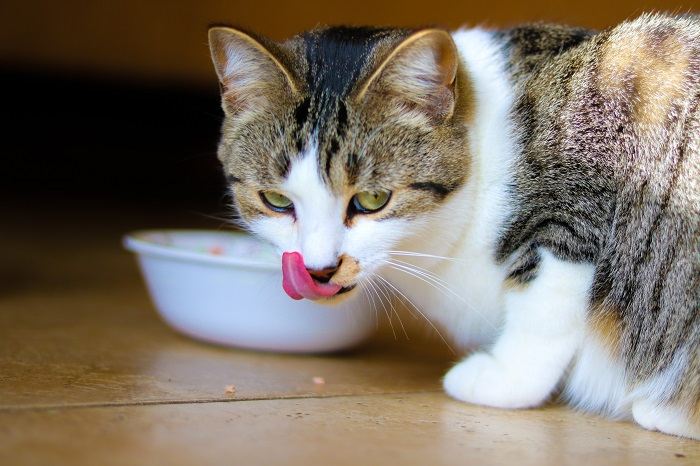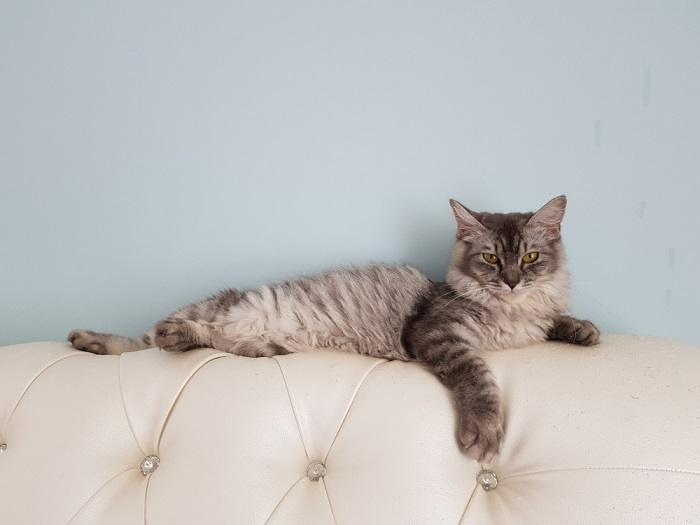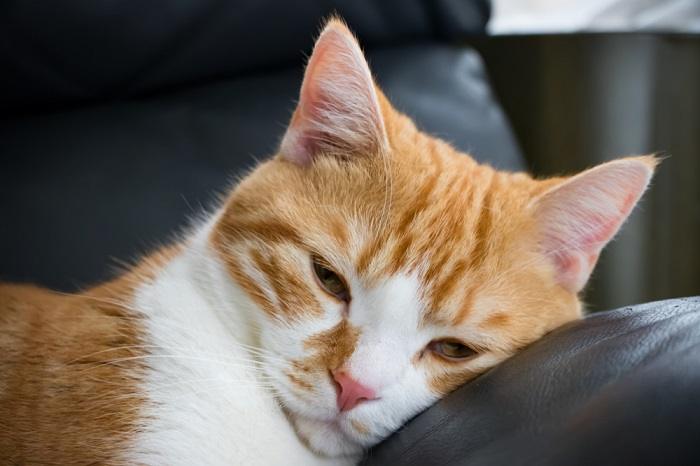As a cat parent, I’ve always been curious about what’s safe for my feline friends to eat One question that comes up frequently is about chicken bones – those tempting leftovers that our cats seem so interested in The smell of chicken can bring most cats running from across the house, but should we actually be letting them gnaw on those bones? Let’s dive into everything you need to know about cats and chicken bones.
The Quick Answer: Raw Maybe, Cooked Never
Before we get into all the details, here’s the bottom line cooked chicken bones are dangerous for cats and should never be given to them Raw bones are less risky but still pose potential hazards Most veterinarians and animal experts agree that it’s safest to avoid giving your cat chicken bones altogether.
Why Cats Are Attracted to Chicken Bones
Cats have an incredible sense of smell and are naturally drawn to chicken. As obligate carnivores their bodies are designed to hunt and consume meat. In the wild feral cats would hunt birds and small animals, consuming some of their bones along with the meat. However, there’s a big difference between the tiny bones of a small bird a wild cat might catch and the larger chicken bones from our dinner plates.
The Dangers of Chicken Bones for Cats
Let’s look at the major risks associated with cats eating chicken bones:
1. Splintering Hazards
Cooked chicken bones are brittle and can easily splinter into sharp fragments. These sharp pieces can:
- Cut or lacerate your cat’s mouth
- Damage the esophagus during swallowing
- Puncture the stomach or intestines
- Cause internal bleeding
Raw bones are less likely to splinter than cooked ones, but they’re still not completely safe.
2. Intestinal Blockage
Bones take a long time to digest, and they’re hard. This creates a significant risk of:
- Obstruction in the digestive tract
- Blockages requiring emergency surgery
- Pain and discomfort for your cat
Even small bones can cause big problems in your cat’s relatively small digestive system.
3. Choking Risk
Bones of any size can potentially:
- Get lodged in your cat’s throat
- Block airways
- Become stuck across the roof of the mouth
Small bones, like those from chicken wings, are not necessarily safer – they can still easily cause choking.
4. Bacterial Infections
Raw chicken bones carry another set of risks:
- Bacteria like Salmonella and Campylobacter
- Food poisoning symptoms in both cats and humans
- Potential for serious illness, especially in kittens, elderly cats, or cats with compromised immune systems
Signs Your Cat May Have Problems After Eating Chicken Bones
If your curious kitty has managed to snag a chicken bone, watch for these warning signs:
Immediate concerns:
- Gagging or choking
- Drooling excessively
- Pawing at the mouth
- Difficulty breathing
- Vomiting
Problems that may develop over hours or days:
- Vomiting (possibly with blood)
- Diarrhea (possibly with blood)
- Constipation or no bowel movements
- Lethargy or weakness
- Loss of appetite
- Abdominal pain or sensitivity
- Fever
- Bloating
What To Do If Your Cat Eats a Chicken Bone
Stay calm! Here’s a step-by-step guide if you discover your cat has eaten a chicken bone:
- Don’t panic – In many cases, the bone might pass through without issues
- Check for choking – If your cat is choking, this is an emergency situation requiring immediate vet attention
- Never induce vomiting – This could cause more damage if sharp bone fragments are present
- Call your vet – Even if your cat seems fine, it’s best to get professional advice
- Monitor closely – Keep your cat indoors where you can observe them
- Watch for symptoms – Check for the warning signs listed above
- Follow your vet’s advice – They may recommend monitoring at home or bringing your cat in for an examination
Raw vs. Cooked Bones: Is There a Difference?
There’s a significant difference between raw and cooked chicken bones when it comes to safety:
Cooked bones:
- Much more brittle and prone to splintering
- Higher risk of causing internal damage
- Lower nutritional value (nutrients leech out during cooking)
- Virtually all vets agree these should NEVER be given to cats
Raw bones:
- Less likely to splinter, but still can
- Still pose choking and blockage risks
- Carry bacteria that can cause infection
- Some vets may consider small raw bones acceptable, but many still advise against them
But Don’t Cats Eat Bones in the Wild?
Yes, feral cats do consume some bones from their prey. However:
- Wild prey typically has much smaller, softer bones than chicken
- Wild cats have learned which bones are safe to eat
- Not all wild cats survive their dietary choices
- Domestic cats often lack the instincts of their wild cousins
- Domestic cats have access to complete nutrition without the risks of bones
Safer Alternatives to Chicken Bones
If you want to give your cat the benefits of bones without the risks, consider these alternatives:
1. Bone Broth
A homemade bone broth (without onions or garlic) provides many of the nutritional benefits of bones without the hazards. It’s rich in:
- Minerals
- Vitamins
- Gelatin and collagen
- Flavor cats love
2. Commercial Cat Food with Bone Meal
Many high-quality cat foods already include bone meal, which provides calcium and other minerals without the risks of whole bones.
3. Dental Treats and Toys
If your cat enjoys chewing, there are many safer options designed specifically for feline dental health.
Classification of Raw Bones (If You Still Choose to Offer Them)
If you do decide to give your cat raw bones (though we dont recommend it), follow these guidelines:
- Choose smaller bones from wings, drumsticks, or necks
- Avoid rib bones (too thin and needle-like)
- Select bones big enough to gnaw but not swallow whole
- Never give bones with spices, seasonings, onions, or garlic
- Always supervise your cat while they’re enjoying a bone
- Remove the bone after a reasonable gnawing session
Tips for Preventing Chicken Bone Incidents
Prevention is always better than dealing with an emergency:
- Secure your trash – Use covered trash cans that cats can’t access
- Clear plates promptly – Don’t leave chicken bones unattended on plates
- Educate family members – Make sure everyone knows not to give bones to the cat
- Be careful when eating – Watch for sneaky cats when you’re enjoying chicken
- Store leftovers safely – Don’t leave bones accessible in sinks or on counters
When to Call the Vet
Don’t hesitate to call your veterinarian if:
- Your cat is showing any signs of distress
- You notice blood in vomit or stool
- Your cat stops eating
- There’s no bowel movement for more than 24-48 hours
- Your cat seems lethargic or in pain
- You’re just not sure and want professional advice
It’s always better to be safe than sorry when it comes to your cat’s health!
The Bottom Line
While the occasional small raw bone might pass through a cat’s system without incident, the potential risks far outweigh the benefits. Cooked bones should never be given to cats under any circumstances.
The safest approach is to skip the bones entirely and provide your cat with a balanced diet using high-quality commercial cat food. If you want to give your cat a special treat, opt for bone broth or commercially prepared cat treats instead.
Remember, our domestic cats rely on us to make good decisions about their safety and health. When it comes to chicken bones, the best choice is almost always to keep them out of reach of those curious paws.
Have you ever had a scare with your cat eating something they shouldn’t? Share your experience in the comments below!

Cats And Chicken Bones: Final Thoughts

Bones can cause multiple problems for cats if eaten, including choking, obstruction or tearing in the digestive tract, and infection. Cooked chicken bones are the riskiest as they are more likely to splinter and cause damage. That being said, raw bones should also be avoided. There is little debate on if cats should eat chicken bones, especially if they can be fed bone broth instead. The bottom line is if your cat has eaten chicken bones, speak with your veterinarian.
Damage To The Digestive System

The internal workings of cats are delicate. Hard, brittle bones have the potential to do unseen damage. Bones take a long time to digest, even after the cat chews them, and can form a hard, solid gastrointestinal blockage that requires major surgery to resolve.
Cooked chicken bones can be even more dangerous, as they tend to be more brittle and splinter easily. These small shards can then puncture and tear the cat’s stomach, esophagus, intestines, and even other internal organs. Raw bones are less likely to splinter, but still cause blockages and tears.
Symptoms of gastrointestinal damage or blockage include vomiting, diarrhea, not passing any poop, lethargy, not wanting to eat, and fever. The vomit may include blood if tearing has occurred.

Raw food carries health risks for cat owners as well as their pets. Bacteria such as Salmonella and Campylobacter can be carried on raw meat, and cause illnesses such as severe vomiting and diarrhea. These microorganisms can then multiply and pass from your cat’s saliva and poop onto people, causing symptoms of food poisoning.
Vulnerable humans such as children, the elderly, and the immunosuppressed are more likely to contract an infection in this way but these infections can cause disease in anyone.
Symptoms of infection include vomiting, diarrhea, lethargy, fever, and collapse.
Also Read: The 9 Best Chicken Cat Food Formulas
Eating a hard object such as a bone always carries a choking hazard. Bones can get lodged across the top of your cat’s mouth or in your cat’s throat, causing irritation and even tearing to the sensitive tissue. Bones that are accidentally inhaled become lodged in the trachea (windpipe), causing breathing difficulties that could be fatal.
The size of the bone is crucial here – it is a common myth that smaller bones such as a chicken wing are less dangerous, as these smaller pieces can still easily block an airway or food pipe.
Symptoms of chocking include gagging, retching, drooling, pawing at the mouth, struggling to breathe, and collapsing.
Why my cat eats chicken BONES every week #shorts
FAQ
Can cats eat chicken bones?
Cooked chicken bones pose a threat as they can easily become brittle and break, causing your cat great harm. A splintered chicken bone can rupture your cat’s throat while he swallows, damage his stomach and intestines, and possibly lead to his death. Cooked poultry bones are a general no-no for both dogs and cats. Are chicken bones safe for cats?
Can cats eat raw bones?
Raw bones are richer in nutrients, easier to digest, and much safer for your cat to eat compared to cooked bones. These bones should be relatively small and come from a bird (like a chicken or turkey). Small bones help minimize the risk of your cat choking. Small bones are also less likely to become lodged somewhere in a cat’s intestinal tract.
How do you know if a cat eats a chicken bone?
Look for signs that your cat is feeling unwell after they have eaten a chicken bone. Raw food carries health risks for cat owners as well as their pets. Bacteria such as Salmonella and Campylobacter can be carried on raw meat, and cause illnesses such as severe vomiting and diarrhea.
Can cats eat raw chicken?
Raw chicken can harbor harmful bacteria, such as Salmonella and Campylobacter, which can cause serious illness in cats and can be transmitted to humans. Additionally, raw bones can still be a choking hazard or cause intestinal blockages. Even a small amount of bone can be dangerous, especially if it splinters.
What bone should a cat eat?
The best bones for cats come from the wings, drumsticks and necks. Chicken rib bones are just too thin and can be like nibbling on needles. Your cat needs a bone big enough to gnaw without swallowing. Bones that are too big can damage teeth, so look for that happy medium.
Can a cat die from eating a chicken bone?
Yes, there is a chance that a cat could die from eating a chicken bone. There are several significant risks associated with your cat eating a chicken bone. The bone could either become lodged in the throat and cause your cat to choke, or it could cause irreversible damage to your cat’s intestines. How Do I Stop My Cat From Eating Chicken Bones?
Is it okay to give cats chicken bones?
Can bones be digested by cats?
What bones are safe for cats to chew on?
Chicken wings and all quail bones are the best place to start if you want to feed your cat bones. Only feed raw meaty bones and never feed cooked bones as they can splinter and cause harm.
Can stray cats eat cooked chicken bones?
NO. Cooked poultry bones are NOT SAFE for animals to eat. They break into splinters that can cause serious internal damage.
